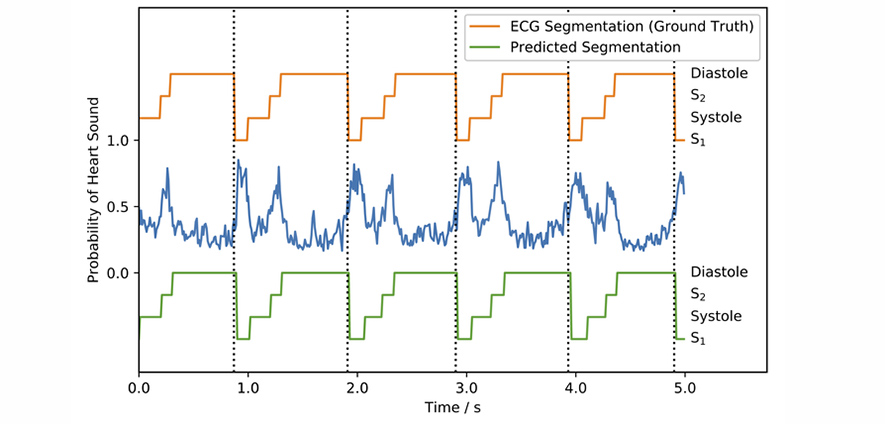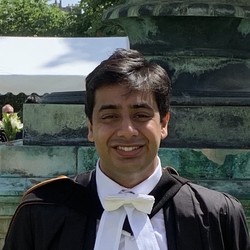
Submitted by Rachel Gardner on Tue, 15/09/2020 - 17:52
Body sounds are an excellent source of information for understanding the state of the human body and monitoring them with digital devices is a technique that is being increasingly explored. But there are many challenges in deploying such devices effectively.
"When developing mobile and wearable technology, we're usually working with highly restricted power and computational budgets," says student Shyam Tailor. "And there are two further challenges to consider: data privacy, and noise robustness. Handling all four of these constraints is not easy and requires careful design at both the hardware and software layers."
Intrigued by this problem, for his Master's project here Shyam set to work to find out if it was possible to build a continuously wearable device that could listen to the sounds of a human body, monitoring the sounds on-device, and in a way that protected the privacy of the data.
He chose to focus on monitoring heart sounds and created a wearable device that he tested on a small number of research subjects. He wanted them to wear it 'in the wild' - i.e. outside a controlled clinical environment. He was also keen to know if it would work robustly even in noisy environments, compete for accuracy with commercially-available heart monitors, and be low-powered enough that it could be worn continuously.
He discovered that it did indeed work successfully in the hustle and bustle of everyday life. It picked up heart sounds when users were walking or drinking, and even when there was music playing in the background, or when his subjects were in the noisy environment of a coffee shop. And the device itself was also able to reason from the sounds about the function of the heart in a way that had not previously been done.
"My work demonstrates that the concept of building wearable devices that can listen to our bodies and process the data in a privacy-sensitive fashion is possible," Shyam says.
A paper based on his work, 'A First Step Towards On-Device Monitoring of Body Sounds in the Wild', was submitted to this year's International Workshop on Computing for Wellbeing. There, it has just been selected as the Best Paper. It is co-authored with his Master's supervisor Professor Cecilia Mascolo, co-director of the Centre for Mobile, Wearable Systems and Augmented Intelligence and postdoc Jagmohan Chauhan.
 Shyam is now a PhD student who has just returned to Cambridge from the University of Oxford to continue pursuing his PhD here in Nic Lane's group where he is interested in developing techniques to enable the next generation of mobile and wearable technology to use the latest advances in machine learning.
Shyam is now a PhD student who has just returned to Cambridge from the University of Oxford to continue pursuing his PhD here in Nic Lane's group where he is interested in developing techniques to enable the next generation of mobile and wearable technology to use the latest advances in machine learning.
He hopes the work demonstrated in the award-winning paper will be taken up by others. "It makes an important step towards enabling heart sounds to be monitored continuously in nonclinical conditions, and we believe that similar approaches can be adopted for other types of body sounds," he says.
"While this first attempt focused on heart sounds for fitness and stress monitoring purposes," he adds, "we hope that this work can be extended to medical applications, such as detecting asthma attacks or heart murmurs, which are otherwise difficult, or impossible to detect using other sensing modalities that are commonly included in today's wearable devices."

